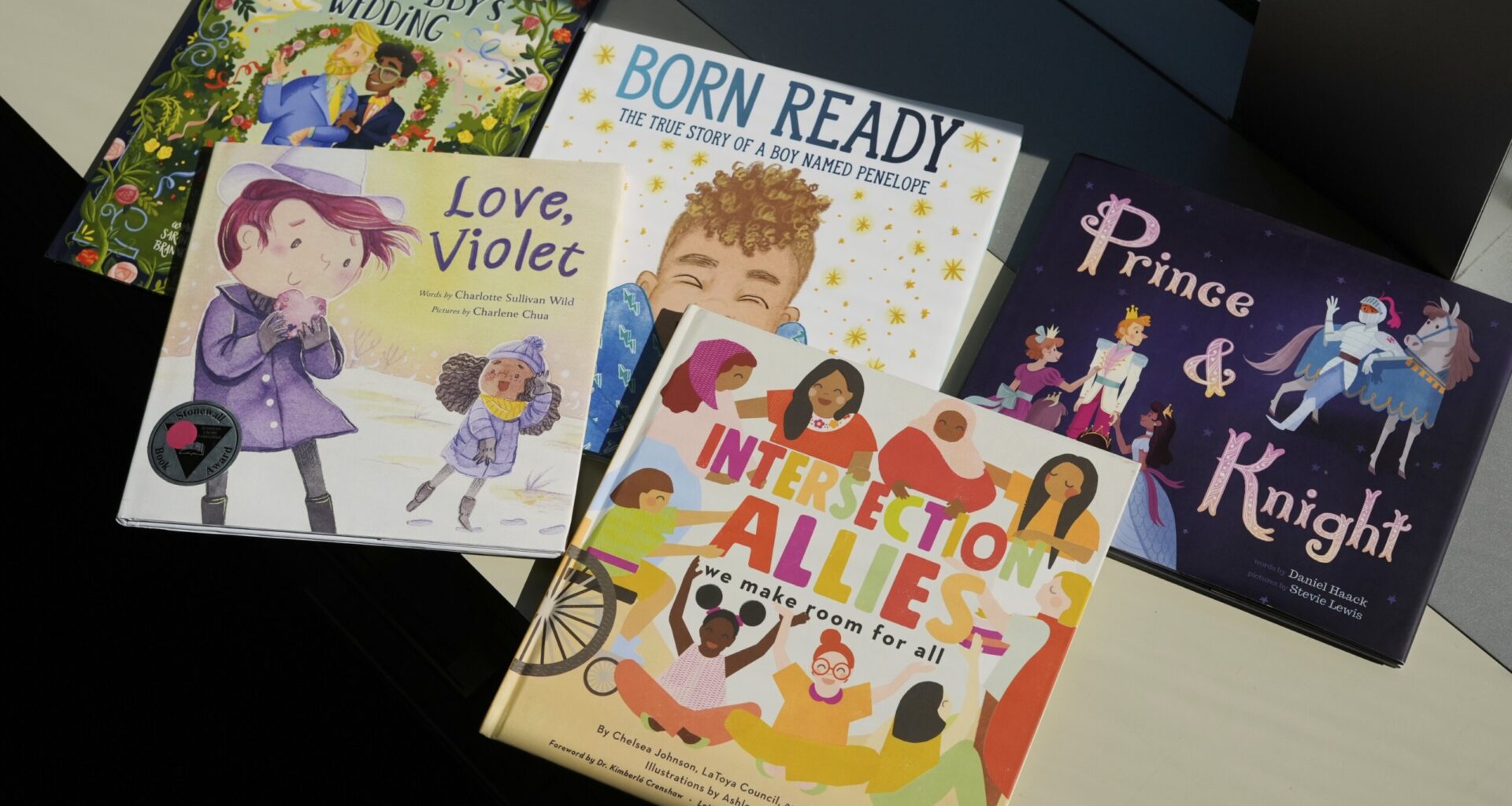The June ruling by the U.S. Supreme Court that Montgomery County, Maryland, public school parents who have religious objections should be able to opt-out their children when school lessons used five LGBTQ+ storybooks raises the question: How will the decision affect local school systems in the coming year?
From vaping, the cost of school supplies to cellphone policies, the WTOP team is studying up on hot-button topics in education across the D.C. region. Follow on air and online in our series “WTOP Goes Back to School” this August and September.
When D.C.-area school systems welcome students for the fall semester, teachers will be expected to offer alternative reading options if parents have religious objections to books chosen for a particular unit.
The June ruling by the U.S. Supreme Court that Montgomery County, Maryland, public school parents who have religious objections should have been able to pull their children out of the classroom when school lessons used five LGBTQ+ storybooks raises the question: How will the decision affect local school systems in the coming year?
The Supreme Court ruling will only affect books required for classroom lessons, although local school systems say they will ensure that school libraries will contain age-appropriate offerings.
With the six conservative justices in the majority, the court reversed lower-court rulings that had favored the Montgomery County school system. The high court ruled the schools likely could not require elementary school children to sit through lessons involving the books if parents expressed religious objections to the material.
The decision, in the form of a preliminary injunction rather than a final ruling in the case, said Montgomery County’s decision to not allow children and families to “opt out” when LGBTQ+ themed books were being used placed “an unconstitutional burden on the parents’ rights to the free exercise of their religion,” according to Justice Samuel Alito.
The books involved in the case were “Prince & Knight,” “Uncle Bobby’s Wedding,” “Love, Violet,” “Born Ready” and “Intersection Allies.”
Shortly after the ruling, Montgomery County’s Board of Education and public school system said in a joint statement: “Although not surprised, we are disappointed,” and that they would continue to analyze the decision and develop next steps in alignment with the court’s ruling.
‘Concerns can be addressed’
“We want our classrooms to be supportive and sensitive to all our students’ experiences in Loudoun County. We know that we’re preparing our students for the real world,” Loudoun County Public School’s Assistant Superintendent for Teaching and Learning Neil Slevin said.
Slevin said all of the school system’s recommended book titles are publicly listed on the LCPS website. “So, if families are curious about what their students may be reading that year, they could go on our website and take a look, with the book descriptions and why that book was selected.”
Slevin said students and families generally have five or six books to choose from, in a particular unit.
“We want students to feel a level of ownership and also choice of what they want to read,” he said.
Slevin said discussing concerns with their child’s teacher is often productive.
“Most of the time, when families are able to engage with our teachers around the content, or book selection, or how it’s going to be taught, the concerns can be addressed,” he said.
However, in the event a family wants to opt-out their child from the half-dozen offerings, “Teachers will work with them to choose a book that the student can engage with, and still meet the standards for that unit,” Slevin said.
In addition to classroom teaching materials, Slevin said, “We are aware that we need to be thinking about development appropriateness in our libraries.” The Loudoun County school system has a procedure in which parents can challenge the appropriateness of books, both in curriculum and libraries.
“We’ve published … all the challenges that we’ve received, and the results,” he added. “Oftentimes, there’s a book that’s more appropriate for a high school audience that ends up in our middle schools … and then we’d say, ‘Why don’t we move that into our high school libraries.’”
“We do want to be transparent about this,” Slevin said. “We do want to engage with families who are concerned.”
‘All types of people exist in this world’
“Teachers are experts in both curriculum and child development,” said Emily VanDerhoff, president of the Fairfax County Federation of Teachers. “So, the books and materials that they’re going to select for their class … are going to be age and developmentally appropriate for the students.”
According to the head of the teachers’ union, “Even if it’s a book that covers themes including LGBTQIA themes, it’s going to be done in a way that is appropriate for the age of the child.”
VanDerhoff said trained teachers don’t offer opinions on whether seemingly controversial themes being taught and discussed are good or bad.
“It’s more like, ‘There’s people that are going to be similar to you, there’s people who are going to be different from you, and there’s all types of people who exist in the world,’” she said.
“It’s not value judgment,” VanDerhoff added. “It’s just getting along and understanding, having empathy for people who are different from yourself.”
WTOP has made repeated requests for comment from Fairfax County Public Schools.
Get breaking news and daily headlines delivered to your email inbox by signing up here.
© 2025 WTOP. All Rights Reserved. This website is not intended for users located within the European Economic Area.
